
Human Rights Groups Demand United Nations Sanction China for Uyghur Repression
As the United Nations General Assembly convened on Manhattan’s Upper East Side with President Joe Biden addressing the assembly on September 19, another critical gathering was taking place at Midtown’s St. Regis Hotel.
This assembly emphasized that despite the international community’s acknowledgment of potential “crimes against humanity” committed by the Chinese Communist Party (CCP) against Uyghurs and other Muslim Turkic peoples, very little progress has been made.
Since the conclusion of the UN’s damning report, which highlighted potential crimes against humanity in China’s Xinjiang region, reports of continued atrocities against Uyghurs have persisted. The panel discussion, moderated by The Economist Senior Editor Gady Epstein, aimed to urge a more robust international response to these Uyghur atrocities.
The event was organized by the Atlantic Council’s Strategic Litigation Project, Human Rights Watch, and Amnesty International. It brought attention to the dire situation in Xinjiang and the lack of concrete action against China.
Human rights and Uyghur advocacy groups have criticized the United Nations for its perceived inaction, emphasizing that little has been done since the Office of the United Nations High Commissioner for Human Rights (OHCHR) released a comprehensive report on August 31, 2022.
The OHCHR’s report concluded that the CCP’s policies in Xinjiang, which target Uyghurs and other Turkic communities, “may constitute international crimes, in particular crimes against humanity.” Despite strong recommendations in the report to halt these abuses, Uyghurs continue to suffer.
The Atlantic Council’s Strategic Litigation Project pointed out that while the UN’s report was a necessary wake-up call, the on-the-ground situation in Xinjiang remains dire, with mass imprisonment, forced labor, family separations, and the suppression of Uyghur culture and identity continuing. The organization stressed the need for international action to stop these atrocities, reunite families, and hold the Chinese government accountable.
Rayhan Asat, a Uyghur human rights lawyer and nonresident senior fellow at The Atlantic Council, shared her personal experience, noting that her brother has been unjustly detained in a concentration camp since 2016. She highlighted the immense pain and trauma inflicted upon Uyghur families and the community as a whole.
While various governments were represented at the discussion, the UN’s official representation was limited. However, the CCP showed interest in the event, warning UN member states not to attend. In a statement issued by China’s UN mission, the event’s cosponsor nonprofits were labeled as “notorious anti-China organizations” interfering in China’s internal affairs, which the CCP claims are focused on economic development and vocational skills training for Uyghurs.
Peter Loeffelhardt, chief of the German Federal Foreign Office Directorate for Asia and the Pacific Division, dismissed the CCP’s claims. He emphasized that human rights are universal, indivisible, and interdependent, and they cannot be separated from other topics or deemed obstacles to development.
He also highlighted that the CCP’s human rights violations extend beyond China’s borders, a point corroborated by Rayhan Asat’s personal testimony. Loeffelhardt stressed the importance of ensuring that those who speak up about human rights violations in China can do so without interference or intimidation in their own countries.
Rayhan Asat added that even Americans in the United States are subject to China’s long-arm reach. Families and loved ones are used as leverage, with Chinese officials allowing short phone calls to confirm their loved ones are alive, creating a climate of fear and self-censorship among Uyghur activists abroad.
This form of “transnational repression,” which extends beyond China’s borders, does not fit within the UN’s current definition of human rights violations, and Asat called for a discussion on codifying such state actions as transnational repression and incorporating them into the international system of accountability.
U.S. Ambassador-at-Large for Global Criminal Justice Beth van Schaack expressed satisfaction that the CCP’s efforts to intimidate and silence human rights advocates had only increased international scrutiny of the situation in Xinjiang. She stressed the need to create pathways to justice for these atrocities and called on the world to stand firm against them in both words and deeds.
Human Rights Watch China Director Sophie Richardson criticized the CCP’s efforts to deter attendance at the discussion and suggested that any government going to such lengths to do so should not be sitting on the UN Human Rights Council. She emphasized the importance of defending the space for advocating human rights until Uyghurs can safely do so themselves at home.

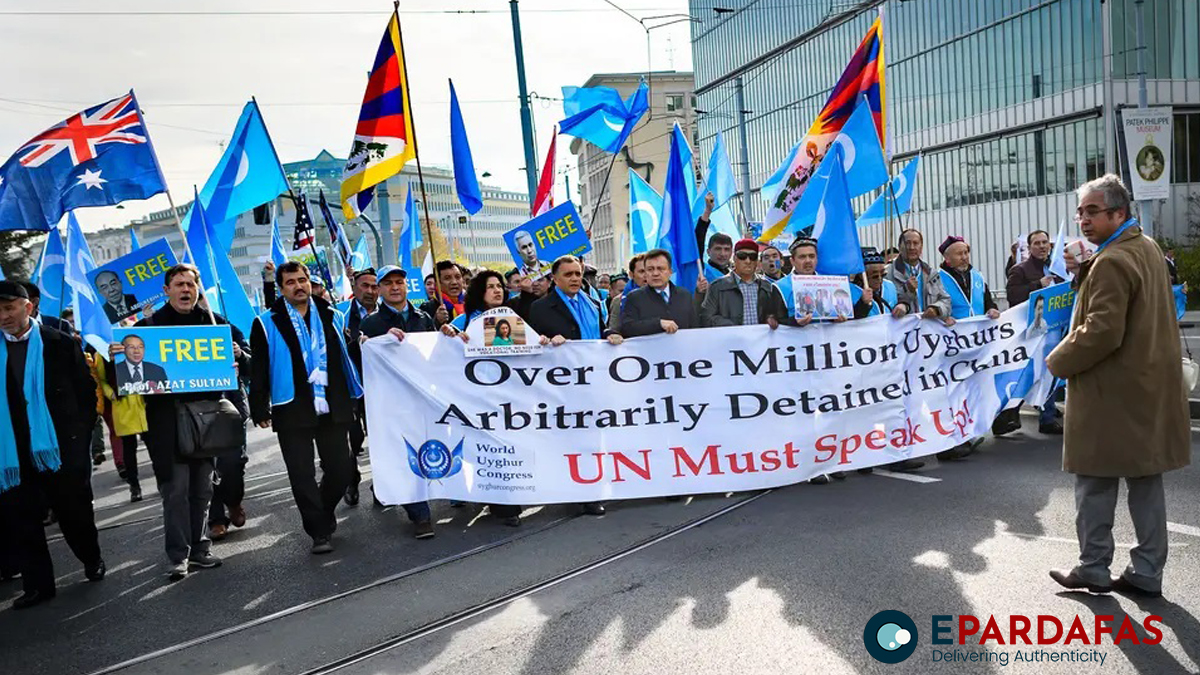
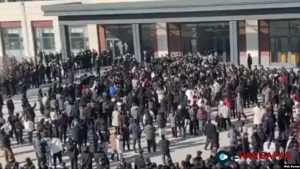
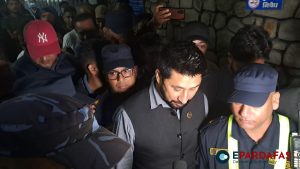

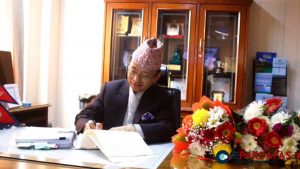
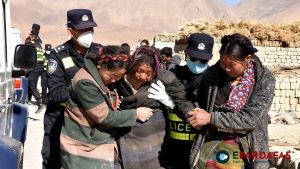
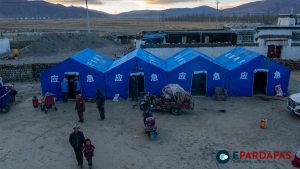

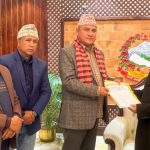



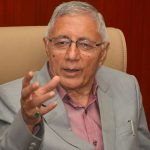
Comments